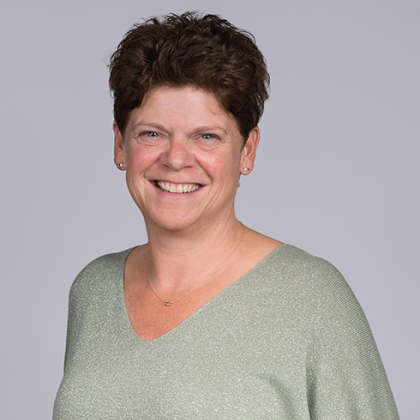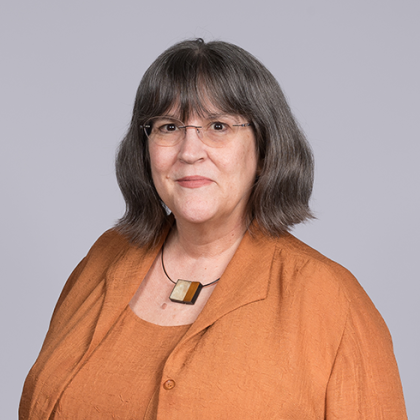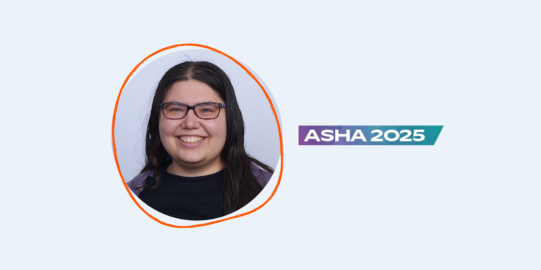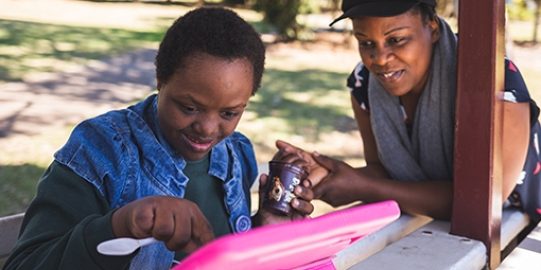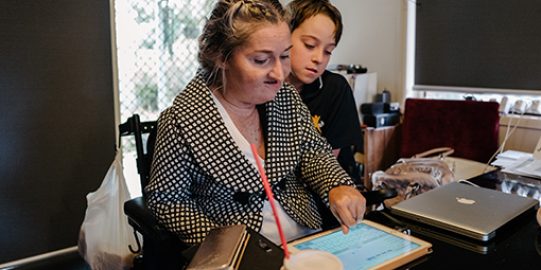Our sessions at #TalkingAAC 2025
Pre-conference session
Adapting AAC training to impact communication partners
Presenters: Barbara van 't Westende and Pam Harris
Date: Wednesday, November 5 | Time: 12:00 PM - 4:00 PM
Supporting emergent AAC learners is a team effort. Implementing AAC across all the students’ natural environments, with their daily communication partners, puts new and challenging demands on AAC coaches and specialists. For strong AAC adoption, we need to train a diverse set of classroom staff and parents to do the day-to-day work of modeling, making AAC available, teaching language, and demonstrating new skills. The team is often learning about AAC while being asked to adopt new habits, mindsets, and teaching practices. As AAC coaches and specialists, we are called on to inspire, motivate, and sustain change in the behavior of a wide range of communication partners. This requires us to learn and apply new soft skills in leading and managing change. Sometimes we are successful and AAC is used across the student’s day, while other times, despite our best efforts, we struggle to get everyone on board. If you want to get more consistent and productive results for your students, then this pre-conference is for you! We will share insights and strategies to help you lead change in AAC practice across all members of the IEP team. We will help you evaluate which strategy will be most effective with different team members, so you can adapt your approach, meet each partner where they are at, and maximize your impact.
In this session, we will explore insights from AssistiveWare's research on how parents and teachers adopt new AAC practices. One major finding from our research is that some of the biggest barriers to successful AAC implementation are not about specific AAC skills or knowledge. For many partners, the barriers are about habit formation, the experience of change itself, and the emotions related to starting AAC. We analyzed why different members of the team often have different responses to the planning, support, and motivation strategies used by AAC coaches and specialists. We applied insights from change theory, psychology, and cognitive science to identify patterns in these responses. We will share this knowledge with you to help you recognize these patterns so you can adjust your approach to meet parents and teachers where they are and build their capacity to support AAC learners.
The best part is that the insights we will apply are applicable to anyone leading change. Participants will leave with evidence-based strategies to help build communication partner capacity to support emergent AAC users.
Family-centered AAC support: insights from the field
Presenters: Barbara van 't Westende and Pam Harris
Date: Friday, November 7 | Time: 8:00 AM - 9:15 AM
Teaching emergent learners to use AAC requires the active support of families and other communication partners. Yet SLPs and other professionals frequently report low levels of family engagement and participation adopting AAC in the home environment. This session presents AssistiveWare’s original research on the lived experience of parents implementing AAC, specifically mothers as the primary caregiver. Our research revealed that parents respond in a range of different ways to common support and motivational strategies used by clinicians and educators. Fortunately, there are predictable patterns in how families respond that can help professionals adapt their approach to meet families where they are at, while building their capacity to better support their AAC learner.
This session will analyze these patterns to provide insights on how a professional can provide the most family-centered support to the parents you encounter. These strategies will help you get consensus on the problem that AAC is intended to solve, while getting on the same page for how we will support the user to become a more effective communicator. We will apply simple insights from change theory to help you adapt your support to the needs of parents at different points in the AAC implementation journey. Clinicians and educators will leave this session with simple, evidence-based strategies to help you build a family’s capacity to support their emergent AAC user. Best yet, these strategies are highly applicable to anyone leading change, such as to professionals focused on implementing AAC within teams of educators, paraprofessionals, or related service personnel such as ABA therapists.
Are we approaching AAC modeling all wrong? Lessons from early language development and “motherese”
Presenters: Barbara van 't Westende and Pam Harris
Date: Friday, November 7 | Time: 12:15 PM - 1:30 PM
Aided language input, or modeling, has become the go-to intervention for teaching AAC. Communication partners are generally encouraged to adopt several modeling strategies, including emphasizing core words, modeling only key words, attributing meaning, verbal referencing, and modeling a slightly longer message than the user can produce. These practices have emerged from research originally conducted decades ago by pioneering researchers such as Carole Goossens, Maryanne Romski, Rose Sevcik, and Cathy Binger. The goal of AAC modeling has always been to replicate how speaking children learn language through receptive input. However, the reality is that modeling AAC is difficult and most communication partners end up modeling very little.
In this session, we will explore the role of language input to support comprehension for children learning language through AAC. We will evaluate how a variety of common modeling strategies align with the receptive input received by speaking children, and we will consider why partners often find it difficult to model AAC. We will revisit some of the original research on AAC modeling and see how the original practices have changed over time. Finally, we will propose changes to modeling practice based in the study of “motherese”, receptive language development, the original research on AAC modeling, and the cognitive and developmental needs of both communication partners and AAC users. Come join the conversation on what is working, and not working, in current modeling practice.

